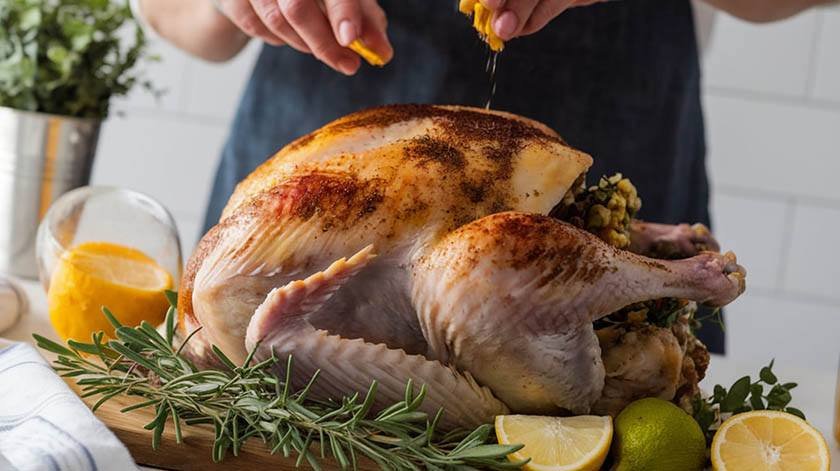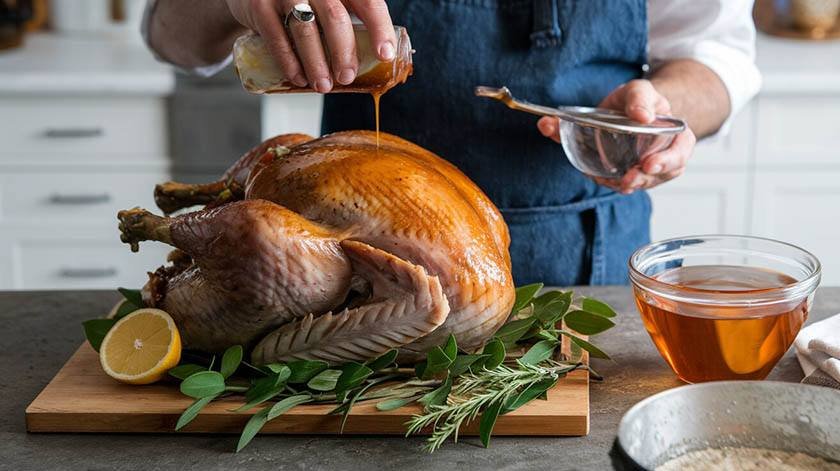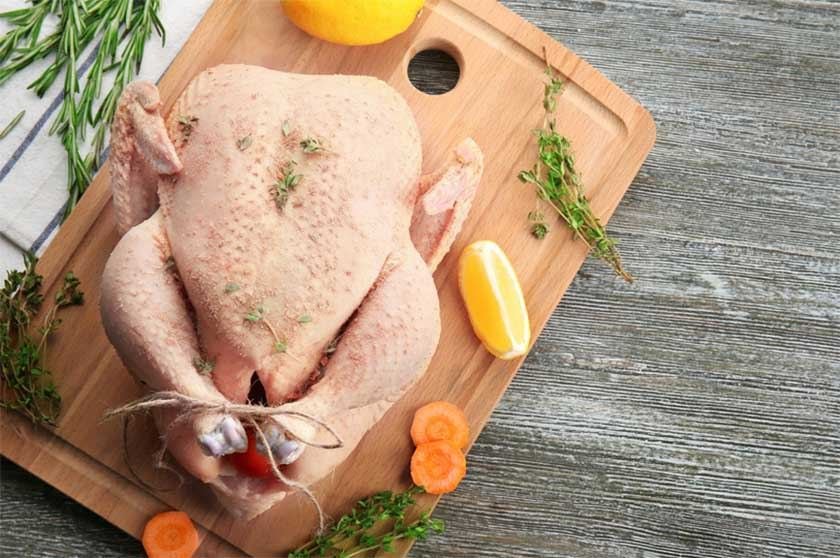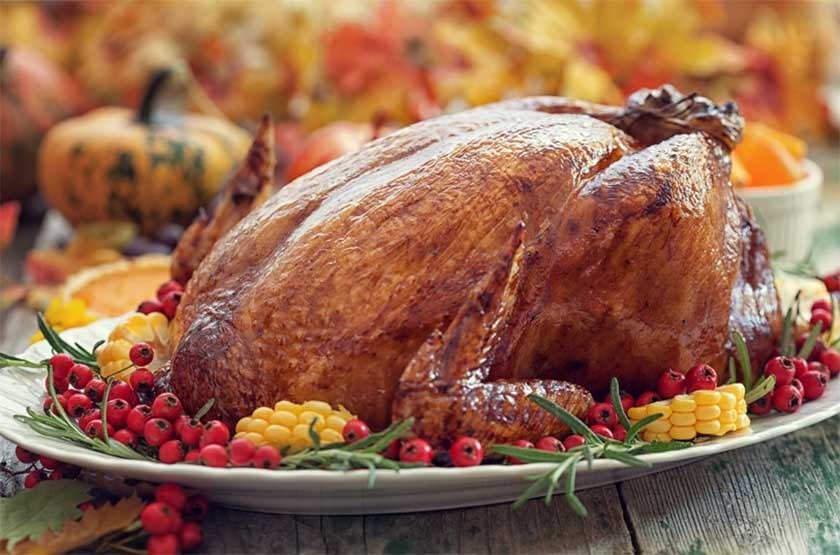When preparing the ideal turkey, proper seasoning is essential for achieving an exquisite flavor and a succulent texture.From the fundamental combination of salt and pepper to the invigorating addition of citrus and aromatic herbs, the possibilities for enhancing flavor are extensive.
This guide will examine the most effective seasonings for turkey, present traditional recipes to elevate your culinary experience, and outline successful techniques to ensure optimal results.
Whether you’re a seasoned chef or preparing turkey for the first time, these tips reveal the best way to season a turkey for perfect results every time.
What Are the Best Seasonings for Turkey?
In the preparation of turkey, the selection of optimal seasonings is crucial for achieving juicy and flavorful results.
A well-considered combination of spices, herbs, and marinades not only enhances the turkey’s natural flavor but also ensures that it remains tender and moist throughout the cooking process.
From the classic use of salt and pepper to the inclusion of aromatic garlic and onion, each seasoning contributes its unique flavor profile, enhancing the overall culinary experience.
Whether one opts for a traditional brine or a zesty wet marinade, understanding the significance of each ingredient is essential for creating a successful turkey dish, particularly during holiday meals such as Thanksgiving.
Salt and Pepper
Salt and pepper serve as essential seasonings for turkey, enhancing its natural flavors while ensuring a delightful balance in every bite.
The appropriate amount of salt not only enhances the turkey’s juiciness but also aids in tenderizing the meat, resulting in a more pleasurable texture.
Simultaneously, pepper contributes a subtle kick, enriching the overall taste profile without overwhelming the dish.
A deeper understanding of the science behind these seasonings reveals that they stimulate taste buds and uncover hidden flavors, making each mouthful a memorable experience.
For those seeking to elevate their culinary skills, experimenting with variations such as smoked salt or different peppercorn blends can introduce exciting new dimensions, transforming a simple turkey dish into a gourmet masterpiece.
Herbs and Spices
Incorporating a blend of herbs and spices can significantly enhance the flavor profile of turkey, providing depth and complexity that transforms a simple dish into a culinary masterpiece.
When combined appropriately, herbs such as rosemary and thyme create a fragrant bouquet that complements the meat exquisitely. Fresh herbs impart a vibrant flavor, while dried alternatives deliver a more concentrated essence, making them excellent choices for rubs and marinades.
Additionally, experimenting with spices like paprika or garlic powder can introduce subtle smokiness or warmth, further enhancing the overall taste experience.
For optimal results, fresh herbs are best utilized as finishing touches or last-minute garnishes, whereas dried spices can be integrated into the cooking process to infuse richer flavors throughout the dish.
Citrus Fruits
 Citrus fruits, including lemon, orange, apple, and pear, offer a refreshing burst of acidity that enhances the flavor profile of turkey.
Citrus fruits, including lemon, orange, apple, and pear, offer a refreshing burst of acidity that enhances the flavor profile of turkey.
When used in marinades or as a basting agent, the tangy juices from these fruits not only elevate taste but also play a crucial role in balancing flavors, making it the best way to season a turkey for a deliciously enhanced flavor profile.
The natural acidity contributes to tenderizing the meat, ensuring that each bite remains juicy and flavorful. Incorporating citrus elements into the cooking process aids in moisture retention, effectively preventing the turkey from drying out during roasting.
Whether combined with herbs, spices, or oils, the vibrant notes of citrus create a harmonious blend that enhances the overall enjoyment of any turkey dish.
Butter or Oil
Utilizing butter or olive oil not only enhances the flavor of turkey but also aids in retaining moisture, resulting in a succulent and juicy outcome.
This technique capitalizes on the unique properties of fats, which enhance the overall taste of the dish while serving as a barrier against the drying effects of heat.
By basting regularly during the cooking process, one can achieve a beautifully browned exterior and enrich the flavor profile, owing to the aromatic qualities that infused oils and compound butters provide.
Incorporating herbs such as rosemary or garlic into the butter, or infusing oil with citrus zest, can elevate a traditional turkey dish to a truly memorable level.
Discovering the best way to season a turkey can transform a classic recipe into an extraordinary culinary experience with these straightforward yet innovative methods.
What Are Some Traditional Turkey Seasoning Recipes?
Exploring traditional turkey seasoning recipes can uncover a wealth of flavors and techniques, each aimed at enhancing the turkey’s inherent qualities and taste for festive occasions.
Classic Herb and Butter Seasoning
A classic herb and butter seasoning blend is a timeless choice that enhances the turkey with aromatic flavors while ensuring a moist and tender result.
This delightful mixture combines fresh herbs such as thyme, rosemary, and sage with rich, creamy butter, creating a perfect harmony of taste. To prepare the blend, one should soften the butter and incorporate finely chopped herbs, garlic, salt, and pepper until thoroughly mixed.
Before application, it is essential to ensure that the turkey is completely dried to facilitate proper adherence of the seasoning. For optimal flavor infusion, gently separate the skin from the meat and spread the blend directly onto the flesh, as well as on the exterior of the turkey.
This versatile seasoning complements various cooking techniques, enhancing roasted, grilled, or smoked preparations, ultimately resulting in a delectable and aromatic dish that is sure to please all.
Citrus and Herb Seasoning
Combining citrus fruits with fresh herbs creates a vibrant seasoning that not only enhances the flavor of the turkey but also adds a delightful aroma to the dish.
This technique fully utilizes the potential of the ingredients, allowing the bright, zesty notes of the citrus to harmonize beautifully with the earthy, aromatic qualities of the herbs.
The best way to season a turkey is by preparing a marinade and allowing enough time for the flavors to be absorbed – marinating for several hours or even overnight can lead to a much more robust taste.
For a refreshing variation, pairing rosemary with lemon or thyme with orange can elevate the overall profile of the meal, while dill and lime create a refreshing complement, making them ideal for a summer feast.
Experimenting with different combinations opens a realm of culinary creativity that is sure to impress.
Cajun Seasoning
Cajun seasoning imparts a bold and spicy essence to turkey, making it an excellent choice for individuals seeking to incorporate unique and robust flavors into their culinary repertoire.
This vibrant blend typically comprises a variety of herbs and spices, including paprika, cayenne pepper, garlic powder, onion powder, and black pepper, which work in harmony to create a distinctive flavor profile.
To effectively apply this seasoning to turkey, one may generously rub the spice blend onto the meat or integrate it into a marinade, ensuring that the flavors penetrate thoroughly. Optimal cooking methods for highlighting the depth of Cajun flavors include roasting, grilling, or smoking.
These techniques not only enhance the juiciness of the turkey but also allow the spices to infuse the dish, elevating a simple meal into an extraordinary culinary experience.
Garlic and Rosemary Seasoning
The combination of garlic and rosemary yields a savory seasoning that complements turkey exceptionally well, infusing it with rich and aromatic flavors.
This versatile rub not only enhances the natural taste of the meat but also elevates it to a gourmet standard. To prepare the rub, one should begin by finely chopping fresh garlic, as its pungent aroma is a critical component of the flavor profile.
It is advisable to combine the garlic with freshly chopped rosemary, a drizzle of olive oil, salt, and pepper to achieve a harmonious balance. For optimal results, marinating the turkey for a minimum of several hours – preferably overnight – allows the ingredients to penetrate deeply into the meat.
Additionally, basting the turkey with the remaining rub during the cooking process can help retain moisture and further amplify the savory notes, culminating in a mouth-watering dish that is certain to impress guests.
What is the Best Way to Season a Turkey for Juicy Results?
Achieving optimal results when seasoning a turkey requires the application of several established techniques, including brining, employing a dry rub, or injecting flavorful marinades into the meat.
Brining
 Brining is a highly effective technique that significantly enhances the moisture and flavor of turkey by immersing it in a saltwater solution, often infused with various herbs and spices.
Brining is a highly effective technique that significantly enhances the moisture and flavor of turkey by immersing it in a saltwater solution, often infused with various herbs and spices.
This process typically employs a ratio of one cup of salt for every gallon of water, although variations may occur based on individual taste preferences.
The best way to season a turkey is to fully submerge it in this mixture, allowing it to soak for 12 to 24 hours to ensure even absorption of the liquid. Food safety is of utmost importance – it is essential to keep the brining turkey refrigerated to prevent the growth of harmful bacteria.
For those seeking a less cumbersome alternative, dry brining may also be considered. This method involves applying salt and seasonings directly to the turkey’s skin and allowing it to rest in the refrigerator, thereby enhancing flavor without introducing additional moisture.
Dry Rub
A dry rub is a carefully crafted blend of spices that is applied directly to the skin of the turkey, resulting in a flavorful crust that effectively retains moisture during the cooking process.
This savory mixture not only enhances the flavor of the dish but also enriches the overall dining experience. To achieve optimal results, the timing of the application is essential – it is recommended to apply the rub at least a few hours prior to cooking, allowing the spices ample time to penetrate the meat thoroughly.
Various spices – such as smoked paprika, cumin, and garlic powder – contribute distinct flavor notes, creating a complex profile that complements the turkey’s inherent richness.
For optimal effectiveness, it is advisable to apply the rub thoroughly over the entire surface of the turkey, paying particular attention to crevices to ensure even coverage and maximize flavor infusion during the cooking process.
Injecting
Injecting a marinade directly into turkey can significantly enhance its flavor and moisture content, facilitating a deep infusion of flavors that permeates the meat.
This method necessitates specific tools, such as a meat injector, which typically consists of a syringe-like barrel and a needle specifically designed for this purpose. Popular marinade recipes may include a blend of herbs, garlic, lemon juice, or even fruit juices, which serve to both season the meat and tenderize it.
To achieve optimal results, ensuring even distribution of the marinade is essential – it is advisable to inject the marinade at multiple points throughout the turkey, with particular attention to thicker areas for maximum effect.
Compared to traditional marinating, which often requires hours of soaking, injecting provides immediate flavor enhancement, making it a convenient option for those with limited time while still aiming for a deliciously seasoned turkey.
Butter Under the Skin
Placing butter beneath the skin of the turkey is an effective technique that enhances flavor and ensures moist, juicy results throughout the cooking process. By carefully lifting the skin without causing any tears, one can create pockets that hold rich, seasoned butter.
This method presents an excellent opportunity to explore various flavor combinations – for instance, incorporating garlic and rosemary can impart a savory depth, while a touch of citrus zest adds brightness to the overall profile.
The cooking method employed – whether roasting or grilling – significantly influences the final dish. A high-heat roast allows the butter to melt and baste the meat from within, while grilling can impart a delightful smoky note, resulting in a beautifully browned, flavorful turkey that is sure to impress all diners.
How to Properly Season a Turkey for Roasting?
Properly seasoning a turkey for roasting requires meticulous preparation. This includes selecting the appropriate method, applying the seasoning uniformly, and understanding the necessary cooking times and temperatures.
Prepare the Turkey
 The best way to season a turkey involves several critical steps, including proper thawing, thorough cleaning, and following essential food safety standards to ensure a flavorful and successful meal.
The best way to season a turkey involves several critical steps, including proper thawing, thorough cleaning, and following essential food safety standards to ensure a flavorful and successful meal.
To initiate this important process, it is imperative that the turkey is completely thawed to guarantee even cooking and to mitigate the risk of foodborne illnesses.
The refrigerator serves as the safest environment for thawing, requiring approximately 24 hours for every four to five pounds of turkey. Once the turkey is fully thawed, the subsequent step involves thoroughly cleaning all surfaces and utensils that will come into contact with the poultry.
This practice significantly reduces the risk of cross-contamination, particularly with raw poultry juices. It is also essential to wash hands both before and after handling the turkey and to utilize separate cutting boards for different food items to uphold hygiene standards.
Adhering to these procedures will contribute to a delicious and safe holiday feast.
2. Choose Your Seasoning Method
Selecting the appropriate seasoning method is crucial for optimizing flavor and moisture retention, whether one chooses brining, dry rub, or injection techniques. Each method presents distinct advantages and disadvantages that can significantly influence the final outcome.
For example, brining not only imbues the turkey with moisture but also enhances its overall flavor profile through the absorption of spices and aromatics.
Conversely, a dry rub creates a pleasing crust and allows the natural flavors of the turkey to emerge- however, it necessitates careful timing to prevent dryness.
Injection techniques can deliver concentrated bursts of seasoning deep into the meat, but if not executed properly, they may lead to uneven flavor distribution.
A thorough evaluation of these methods is essential in determining the most effective approach for achieving a deliciously seasoned turkey that accommodates various taste preferences.
Apply Seasoning to the Turkey
Applying seasoning evenly to the turkey is essential for ensuring a consistent flavor throughout the meat, thereby enhancing the enjoyment of each bite.
To achieve optimal flavor distribution, an effective technique involves using a dry rub. By massaging the seasoning into the skin and flesh, the flavors can penetrate deeply.
Additionally, timing is a crucial factor – applying seasonings well in advance – preferably the night before – enables the turkey to absorb the flavors, resulting in a more robust taste.
Furthermore, incorporating multiple layers of flavor can be accomplished by utilizing aromatics such as garlic and herbs, both inside the cavity and beneath the skin. This approach allows the meat to develop aromatic complexity during the cooking process.
Roast the Turkey
Roasting the turkey at the appropriate temperature and duration is essential for achieving a golden-brown skin while ensuring that the meat remains juicy and tender.
To achieve this, it is imperative to preheat the oven to a temperature between 325°F and 350°F, facilitating even cooking of the bird.
The best way to season a turkey involves knowing the correct cooking time, which varies depending on the size – generally, it’s about 13 minutes per pound for unstuffed turkeys and 15 minutes per pound for stuffed ones.
Consequently, a 12-pound turkey should ideally roast for approximately 2.5 to 3 hours. Most importantly, employing a food thermometer to verify the internal temperature is critical for food safety.
The thickest part of the thigh should reach a minimum temperature of 165°F to eliminate any risk of foodborne illness and ensure an enjoyable dining experience. Head down to the FAQ section for further assistance.
The best way to season a turkey for juicy results is to start by brining the turkey before cooking. This will help the meat retain moisture and infuse it with flavor. You can also use a combination of herbs, spices, and citrus to season the turkey before cooking.
To brine a turkey, you will need a large container or bag big enough to hold the turkey and brine solution. Mix together water, salt, and any desired herbs and spices in the container. Submerge the turkey in the brine and refrigerate for at least 12 hours before cooking.
Yes, you can use a dry rub to season a turkey for juicy results. However, be sure to use a rub with salt and other flavorful herbs and spices, and apply it generously to the turkey before cooking. This will help enhance the flavor and moisture of the turkey.
Yes, it is important to season both the inside and outside of the turkey for juicy results. Use a combination of herbs, spices, and citrus to season the cavity of the turkey before cooking. This will infuse the meat with flavor and help keep it moist.
Some people swear by basting the turkey every 30 minutes while cooking, but this can actually cause the turkey to lose moisture. Instead, try basting the turkey every hour or so with a flavorful liquid, such as broth or fruit juice, to keep it moist.
Yes, if you are watching your sodium intake or simply prefer not to use salt, you can still season a turkey for juicy results. Try using a combination of herbs, spices, and citrus, along with a flavorful liquid like broth or fruit juice, to add flavor and moisture to the turkey.

